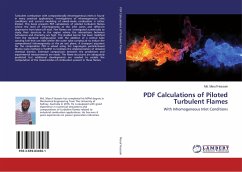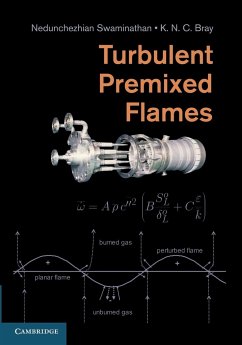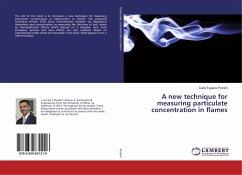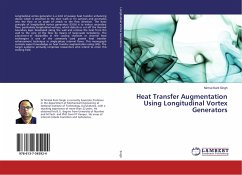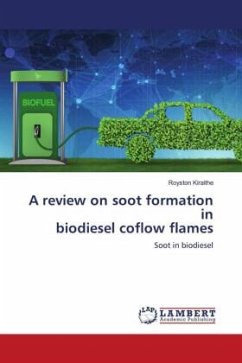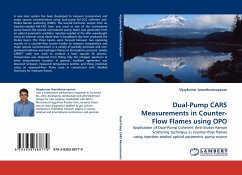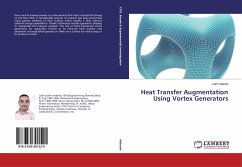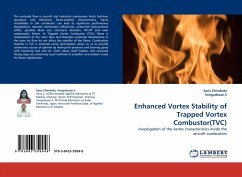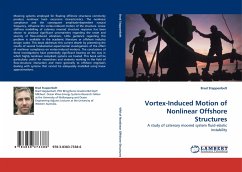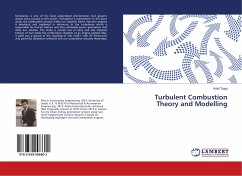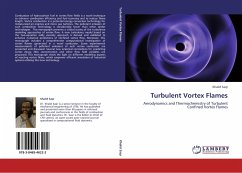
Turbulent Vortex Flames
Aerodynamics and Thermochemistry of Turbulent Confined Vortex Flames
Versandkostenfrei!
Versandfertig in 6-10 Tagen
45,99 €
inkl. MwSt.

PAYBACK Punkte
23 °P sammeln!
Combustion of hydrocarbon fuel in vortex flow fields is a novel technique to enhance combustion efficiency and fuel economy and to reduce flame length. Vortex combustion is a potential energy conversion technology for miniaturized jet engines and micro gas turbines. The pollutant emission of such combustion technology is considerably lower than other similar technologies. This monograph presents a critical survey of the turbulence modeling approaches of vortex flow. A new turbulence model based on the two-equation eddy viscosity approach is derived and validated to enhance numerical prediction...
Combustion of hydrocarbon fuel in vortex flow fields is a novel technique to enhance combustion efficiency and fuel economy and to reduce flame length. Vortex combustion is a potential energy conversion technology for miniaturized jet engines and micro gas turbines. The pollutant emission of such combustion technology is considerably lower than other similar technologies. This monograph presents a critical survey of the turbulence modeling approaches of vortex flow. A new turbulence model based on the two-equation eddy viscosity approach is derived and validated to enhance numerical predictions of confined vortex flow. Moreover, this monograph includes a comprehensive computational investigation of vortex flames generated in a novel combustor. Some experimental measurements of pollutant emissions of such vortex combustor are presented and discussed. Several new empirical correlations for predicting vortex decay, NOx concentration and other flow field variables are proposed. This monograph sheds the light on different modeling aspects of reacting vortex flows, which empower efficient simulation of industrial systems utilizing this new technology.



